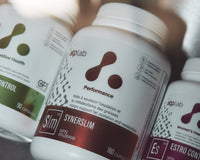Sleep

As you know, sleep is probably the most neglected part of the day. We should, however, be prioritizing and optimizing this time for rest. On average, adults should sleep between seven and a half and nine hours for optimal function, women often needing a little more than men. However, most people sleep less than seven hours, so it is not surprising there are so many related problems. If you think that sleep is overrated, please read this short article.
Humans are the kings of sleep deprivation, and many of us do not realize how much it affects our health. Sleep must be one of the most studied subjects in the scientific community, as it plays a key role in the proper functioning of the human body. What you should know is that like food, quality is much more important than quantity. A good night’s sleep is an uninterrupted one. If you sleep for 12 hours, but wake up and turn over in a bed a lot, it is not really 12 hours’ sleep. Here are some of the effects of sleep deprivation on the body:
Fortunately, there are some tips that can help:
- Reduces concentration
- Reduces the ability to retain information (memory)
- Promotes weight gain
- Decreases appetite control
- Reduces insulin sensitivity
- Increases the risk of cardiovascular accidents
- Increases the risk of developing type 2 diabetes
Fortunately, there are some tips that can help:
- Avoid stimulants, especially in the afternoon. They stay in your system longer than you realize.
- Avoid bright light sources. Do not forget that humans are mammals, and like all animals are sensitive to light.
- Consume a good amount of animal-sourced omega-3s. Low consumption of omega-3s affects melatonin production.
- Slow down in the evening. Your mind is unlikely to calm down if your body is agitated.
- Make sure you get a good amount of zinc and magnesium in your diet. Do not hesitate to take a supplement if necessary.
- Avoid LED lights in your bedroom. Opt for subdued lighting.
- Do not hesitate to take a little melatonin, as found in Optisom, to maximize the quality of your sleep.
- Do not eat too much before going to bed and be sure to avoid sugar. High insulin levels and night-time recovery hormones do not go well together.
- Make sure your bedroom is as dark as possible.
- Sleep with as few covers as possible. The body needs to regulate its temperature to recover properly. Flannel pyjamas and two thick blankets may affect recovery.
- http://www.ncbi.nlm.nih.gov/pubmed/8776790
- http://www.ncbi.nlm.nih.gov/pubmed/15798944
- http://www.ncbi.nlm.nih.gov/pubmed/16318592
- http://www.ncbi.nlm.nih.gov/pubmed/15531540
- http://www.ncbi.nlm.nih.gov/pubmed/23691095
- http://www.ncbi.nlm.nih.gov/pmc/articles/PMC2723045/
- http://www.ncbi.nlm.nih.gov/pmc/articles/PMC3496783/
- http://www.ncbi.nlm.nih.gov/pubmed/22827862
- http://www.ncbi.nlm.nih.gov/pmc/articles/PMC535424/
- http://www.isdbweb.org/documents/file/4e118b9fb7b54.pdf
- http://www.ncbi.nlm.nih.gov/pubmed/19910503
- http://www.ncbi.nlm.nih.gov/pubmed/18716175





